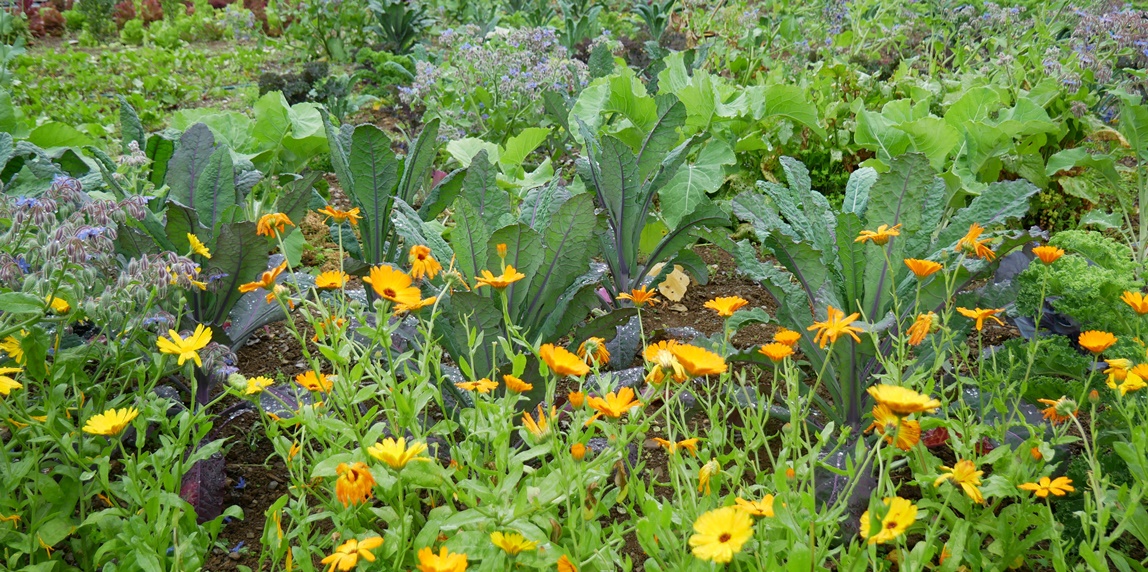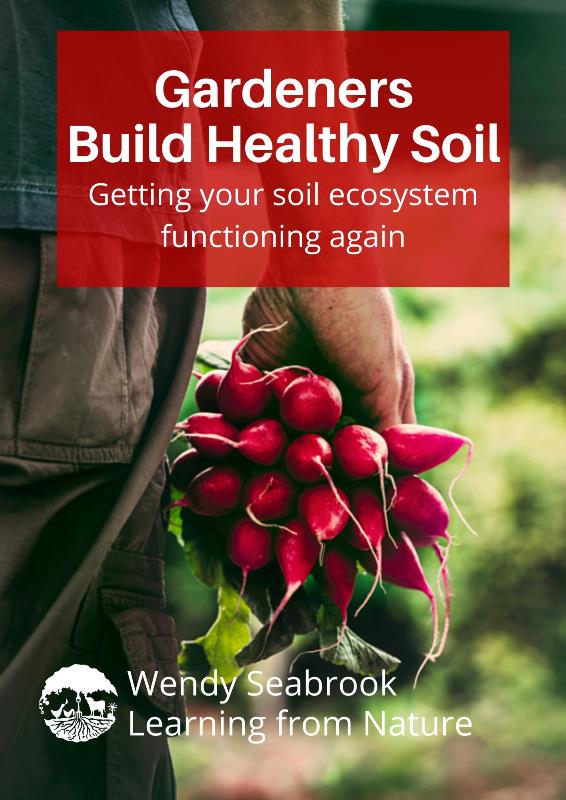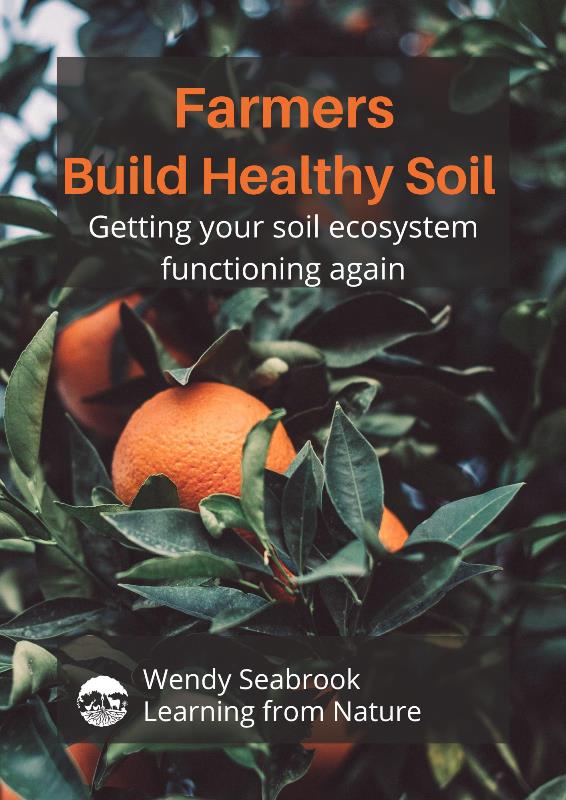Why do we struggle to grow strong, pest and disease-resistant plants and nutrient-dense food, even with all the fertilisers, compost and other inputs we apply, and when the weather turns bad, have trouble growing anything at all?
The answer is that while our soils don’t show the customary signs of soil degradation — erosion and compaction, they are not in good working order. We need functioning soil ecosystems to grow robust plants that yield nutritious food.
We can stop depending on compost and other organic and biological fertilisers by repairing our soil ecosystem, although these inputs can help us get started. Relying on external inputs is unnecessary if we design our vegetable gardens, orchards and fields to provide the natural experts, our soil organisms, with the resources to repair and manage our soil ecosystems. This diverse community of invertebrates and microbes:
- Eat leaves, roots, and other plant and animal waste materials, turning it into organic matter
- Create soil aggregates and maintain soil structures supporting soil life and root growth
- Produce acids and enzymes that release nutrients locked up in the sand, silt and clay particles in the soil
- Recycle the nutrients from the organic materials and mineral particles and make them available for our plants to reuse
- Control soil pathogens and soil-derived plant pests and diseases through complex predator-prey relationships
- Naturally form beneficial symbiotic associations with plant roots
And we solve the issues with our soil!
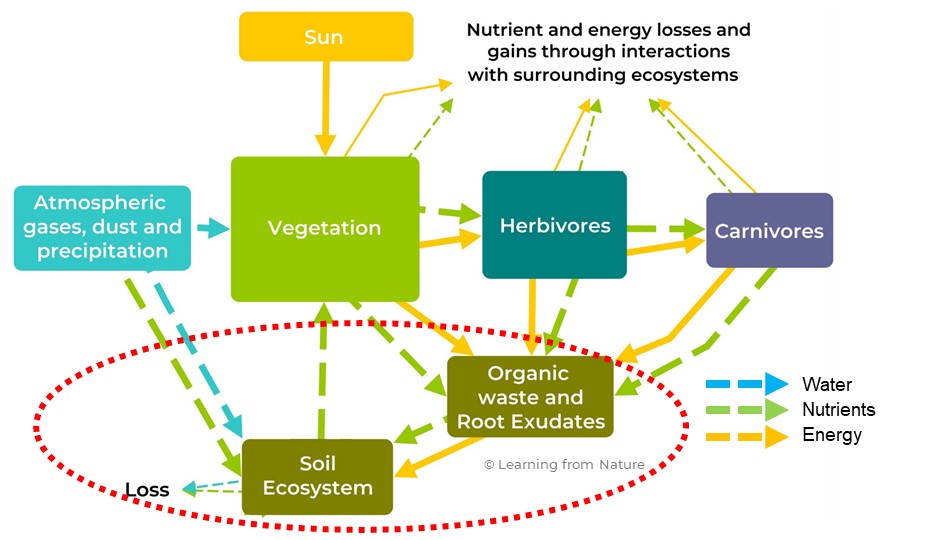
How did our Soil Ecosystems Stop Working?
Our soil ecosystems have fallen into disrepair because, by maximising plant growth for human and livestock consumption, our soil organisms have had a lousy catering service. The menu has been limited, portions small, and the service unreliable! We’ve deprived the microbes and other soil organisms that manage and operate our soil ecosystem of the food supplies needed to do the work for which they have had billions of years of on-the-job training!
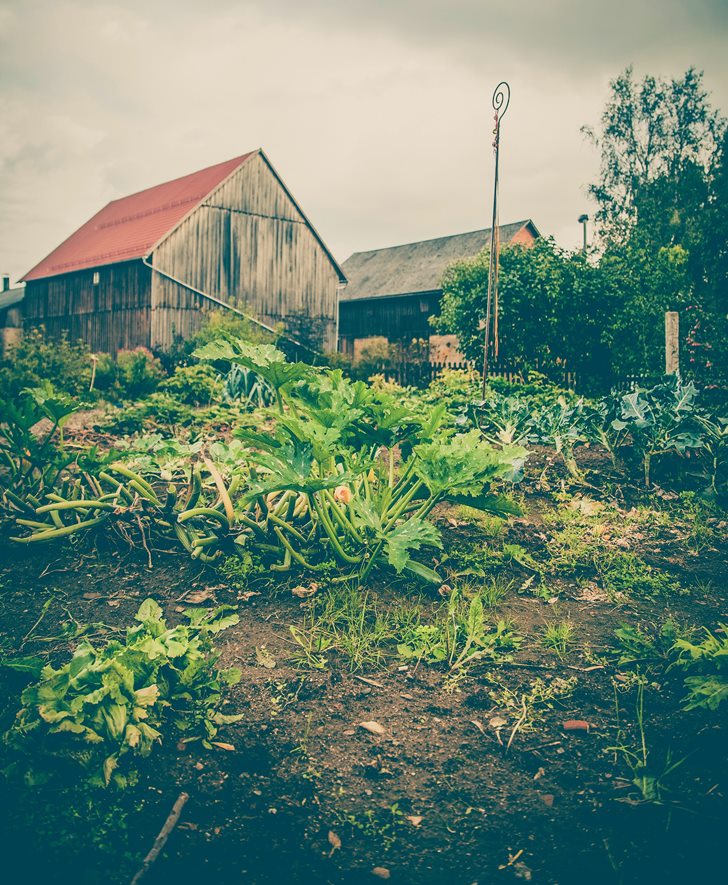
Not much growing here to feed Soil Organisms
Apply these Practical Eco-logical Principles
- Initially, mulch, compost, biological fertilisers, and minerals should be applied to tackle deficiencies that may otherwise limit plant growth.
- Grow abundant plants and use livestock of all shapes and sizes to help recycle the wealth of plant biomass in your soil. This will provide your soil organisms with a generous diet of root tissues, root exudates, and organic waste materials (e.g., leaves, other plant tissues, animal remains, and manure).
- Grow a diversity of plants to diversify your community of soil organisms
- Grow plants for as much of the year as possible to supply your soil organisms with a consistent food supply.
There are many different ways to do this. The trick is to use regenerative practices that work well for your climate, other growing conditions, and what you grow.
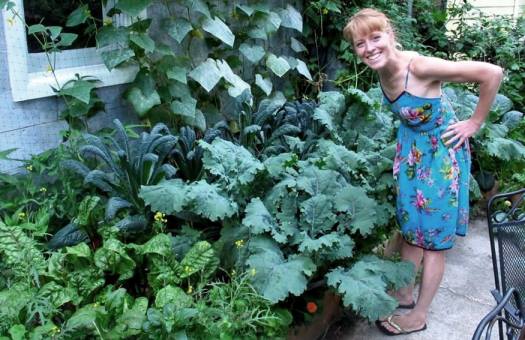
Lots growing here to feed Soil Organisms
Benefits of Building Healthy Soil Eco-logically
- Your plants get five-star catering directly from your soil ecosystem rather than via intermittent and often inadequate inputs we supply.
- Grow healthy plants that are less vulnerable to pests and diseases
- Produced wholesome food for you, your family, your community, and your livestock!
- Leave your spades and tractors in the shed, giving the job of making good soil structure to the experts – your soil organisms!
